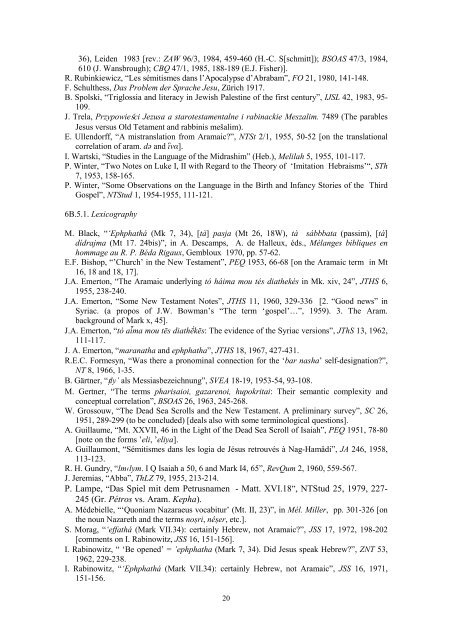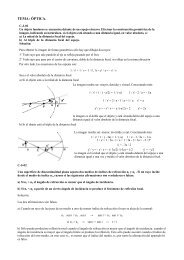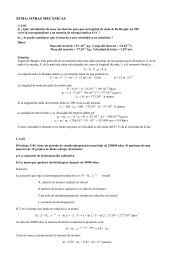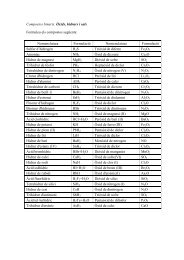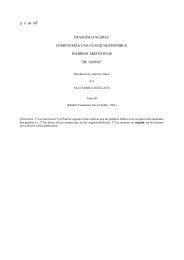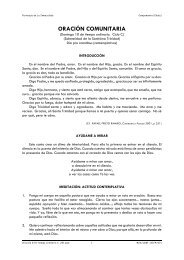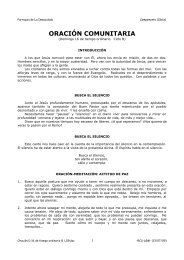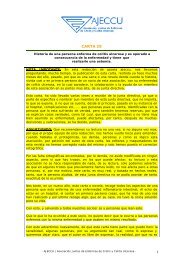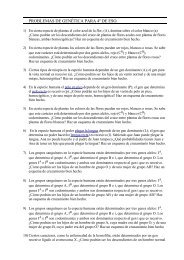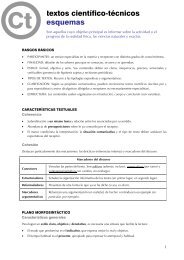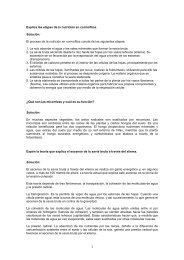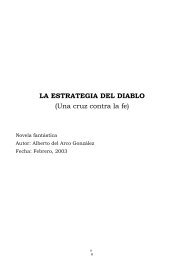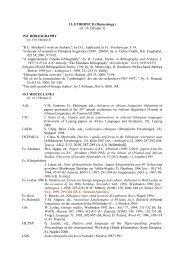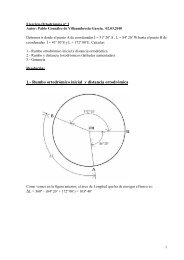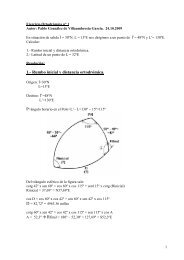BIB-SEM.6HB-dial _2010 - Telefonica.net
BIB-SEM.6HB-dial _2010 - Telefonica.net
BIB-SEM.6HB-dial _2010 - Telefonica.net
You also want an ePaper? Increase the reach of your titles
YUMPU automatically turns print PDFs into web optimized ePapers that Google loves.
36), Leiden 1983 [rev.: ZAW 96/3, 1984, 459-460 (H.-C. S[schmitt]); BSOAS 47/3, 1984,<br />
610 (J. Wansbrough); CBQ 47/1, 1985, 188-189 (E.J. Fisher)].<br />
R. Rubinkiewicz, “Les sémitismes dans l’Apocalypse d’Abrabam”, FO 21, 1980, 141-148.<br />
F. Schulthess, Das Problem der Sprache Jesu, Zürich 1917.<br />
B. Spolski, “Triglossia and literacy in Jewish Palestine of the first century”, IJSL 42, 1983, 95-<br />
109.<br />
J. Trela, Przypowie°ci Jezusa a starotestamentalne i rabinackie Meszalim. 7489 (The parables<br />
Jesus versus Old Tetament and rabbinis mešalim).<br />
E. Ullendorff, “A mistranslation from Aramaic?”, TSt 2/1, 1955, 50-52 [on the translational<br />
correlation of aram. də and ἳνα].<br />
I. Wartski, “Studies in the Language of the Midrashim” (Heb.), Melilah 5, 1955, 101-117.<br />
P. Winter, “Two Notes on Luke I, II with Regard to the Theory of ‘Imitation Hebraisms’“, STh<br />
7, 1953, 158-165.<br />
P. Winter, “Some Observations on the Language in the Birth and Infancy Stories of the Third<br />
Gospel”, TStud 1, 1954-1955, 111-121.<br />
6B.5.1. Lexicography<br />
M. Black, “‘Ephphathá (Mk 7, 34), [tà] pasja (Mt 26, 18W), tà sábbbata (passim), [tà]<br />
dídrajma (Mt 17. 24bis)”, in A. Descamps, A. de Halleux, éds., Mélanges bibliques en<br />
hommage au R. P. Béda Rigaux, Gembloux 1970, pp. 57-62.<br />
E.F. Bishop, “’Church’ in the New Testament”, PEQ 1953, 66-68 [on the Aramaic term in Mt<br />
16, 18 and 18, 17].<br />
J.A. Emerton, “The Aramaic underlying tó háima mou tés diathekés in Mk. xiv, 24”, JTHS 6,<br />
1955, 238-240.<br />
J.A. Emerton, “Some New Testament Notes”, JTHS 11, 1960, 329-336 [2. “Good news” in<br />
Syriac. (a propos of J.W. Bowman’s “The term ‘gospel’…”, 1959). 3. The Aram.<br />
background of Mark x, 45].<br />
J.A. Emerton, “tò aἷma mou tēs diathḗkēs: The evidence of the Syriac versions”, JThS 13, 1962,<br />
111-117.<br />
J. A. Emerton, “maranatha and ephphatha”, JTHS 18, 1967, 427-431.<br />
R.E.C. Formesyn, “Was there a pronominal connection for the ‘bar nasha’ self-designation?”,<br />
T 8, 1966, 1-35.<br />
B. Gärtner, “Ãly’ als Messiasbezeichnung”, SVEA 18-19, 1953-54, 93-108.<br />
M. Gertner, “The terms pharisaioi, gazarenoi, hupokritai: Their semantic complexity and<br />
conceptual correlation”, BSOAS 26, 1963, 245-268.<br />
W. Grossouw, “The Dead Sea Scrolls and the New Testament. A preliminary survey”, SC 26,<br />
1951, 289-299 (to be concluded) [deals also with some terminological questions].<br />
A. Guillaume, “Mt. XXVII, 46 in the Light of the Dead Sea Scroll of Isaiah”, PEQ 1951, 78-80<br />
[note on the forms ’eli, ’eliya].<br />
A. Guillaumont, “Sémitismes dans les logia de Jésus retrouvés à Nag-Hamâdi”, JA 246, 1958,<br />
113-123.<br />
R. H. Gundry, “lm‹lym. I Q Isaiah a 50, 6 and Mark I4, 65”, RevQum 2, 1960, 559-567.<br />
J. Jeremias, “Abba”, ThLZ 79, 1955, 213-214.<br />
P. Lampe, “Das Spiel mit dem Petrusnamen - Matt. XVI.18”, NTStud 25, 1979, 227-<br />
245 (Gr. Pétros vs. Aram. Kepha).<br />
A. Médebielle, “‘Quoniam Nazaraeus vocabitur’ (Mt. II, 23)”, in Mél. Miller, pp. 301-326 [on<br />
the noun Nazareth and the terms noṣri, nêṣer, etc.].<br />
S. Morag, “‘effathá (Mark VII.34): certainly Hebrew, not Aramaic?”, JSS 17, 1972, 198-202<br />
[comments on I. Rabinowitz, JSS 16, 151-156].<br />
I. Rabinowitz, “ ‘Be opened’ = ’ephphatha (Mark 7, 34). Did Jesus speak Hebrew?”, ZT 53,<br />
1962, 229-238.<br />
I. Rabinowitz, “‘Ephphathá (Mark VII.34): certainly Hebrew, not Aramaic”, JSS 16, 1971,<br />
151-156.<br />
20


